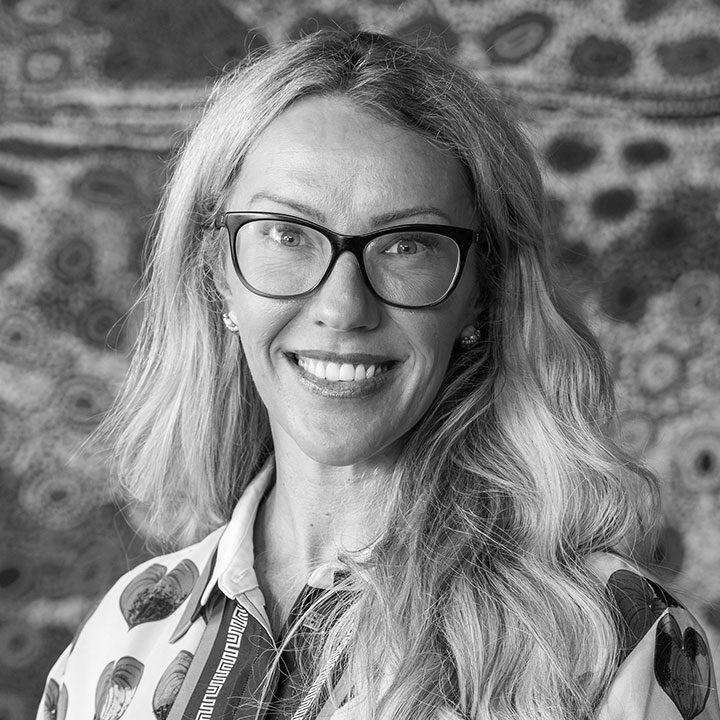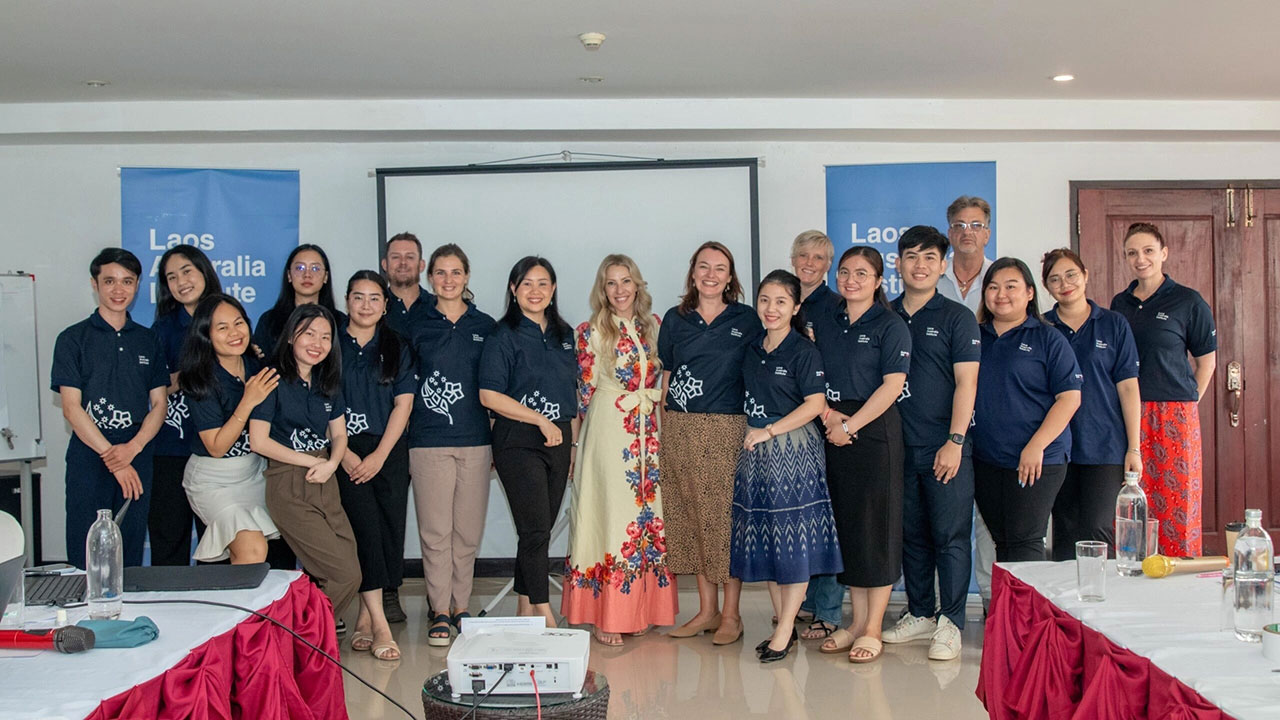
There may be a global skills shortage, but highly skilled individuals are always available to join ambitious organisations with interesting work where there is a clear alignment of values and culture.
Ambitious individuals want to advance their careers and make their own mark, rather than merely being part of someone else’s story. In this piece, Amy Gildea, managing director, discusses her personal and professional experiences in building inclusive leadership and fostering positive change across communities and nations in the Indo-Pacific.
We stand at an incredible point in global history; amidst active conflict in the Ukraine and, closer to home, here in the South China Sea. The world also has emerged from COVID-19 with a stronger drive for ongoing flexibility in work practices that challenge the structural barriers to deeper inclusion. In this article, we highlight how Tetra Tech is backing the bold, using kinship approaches to build bold-hearted leaders who innovate and activate change to foster deeper inclusion within Tetra Tech and in the communities we work.
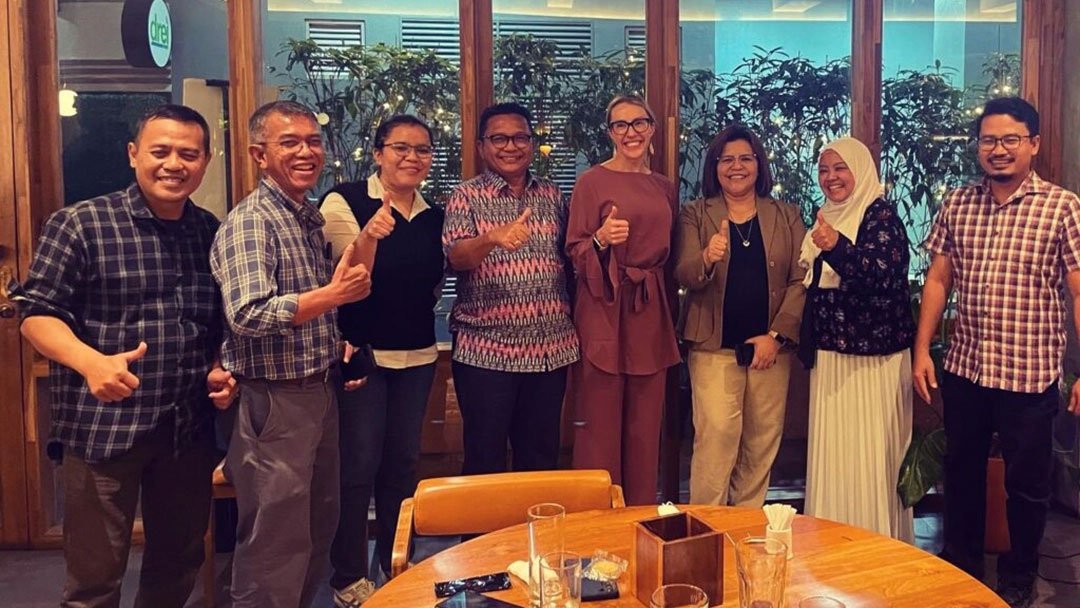
My story
My name is Amy Gildea and I am a Kahu. Kahu is a Hawaiian term that holds many meanings, among them: guardian, protector, steward, beloved attendant… basically someone entrusted with the safekeeping of something precious, something cherished. What a Kahu protects is not their property, rather a part of their soul. I see leadership in the same way—I am a steward and a protector of my team.
I was born in Thailand, lived in the Bamar heartland in Myanmar and grew up with strong Buddhist influences and immersed in Burmese culture and language. I spent half of my early years in Australia and the other half living in many different countries including Indonesia, the Solomon Islands and Tonga. My adult life has mirrored that pattern. For a long time, I wrestled with my Australian identity and wasn’t sure how or where I fit.
I am the first female managing director in the company’s 50-year history. When I moved into this role in 2019, I was one of two women in equivalent roles, and I was 1 of 4 women in senior executive roles. In 4.5 years, the number of women has nearly quadrupled.
Taking an intersectional perspective
It is not enough to just employ women; we need to also employ women and men from diverse backgrounds. I have found generally where we have employed leaders who are diverse in multiple ways. The teams under them are more diverse, there is a higher level of collaboration and ideation, kinship leadership and support.
Through my story I can see complex inputs to an individual’s identity. In my role as a leader, someone with access to privilege and power, I see it is my responsibility to create the organisational architecture that empowers my staff with the resources they need to have an impact and affect change. Increasingly, I see a kinship leadership approach as crucial for Tetra Tech’s success because it requires us to act as kin and lead from a place rooted in learning to include different ways of being, learning from multiple forms of intelligence. This means we can influence the whole system, guiding it towards a shared purpose of reciprocal respect and mutual thriving.
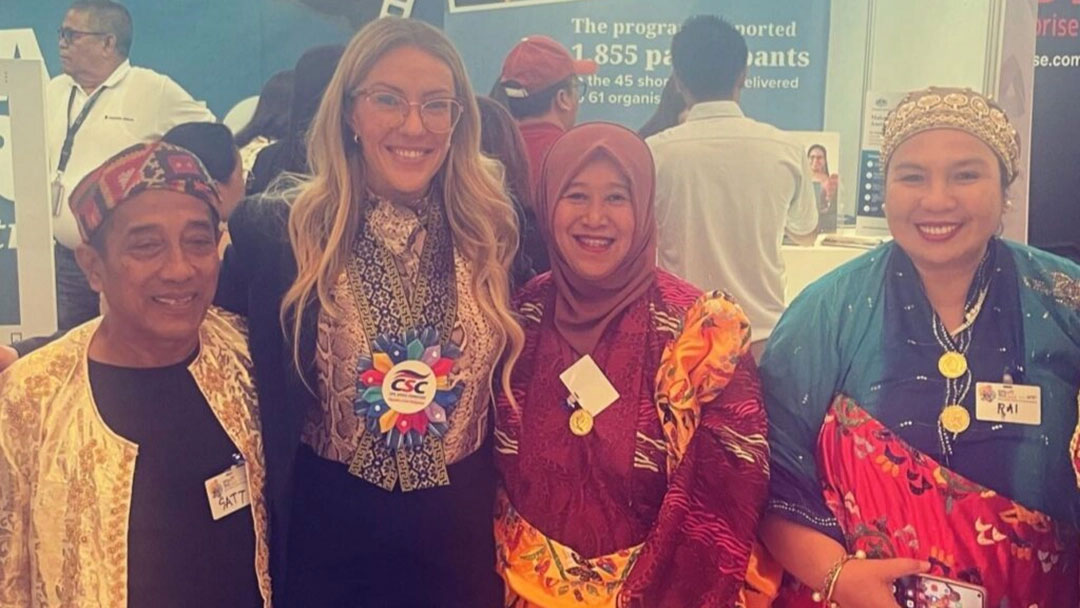
Tetra Tech’s story
Tetra Tech has a broad network of over 27,000 consultants and experts working across 120 countries. With projects across the Indo-Pacific, we are a leading global development firm that delivers complex, multi-year programs in close partnership with national and international governments, bilateral donors, and the private sector. We design, deliver, evaluate and transform the lives of peoples and governments through data-driven, practical, inclusive, and sustainable solutions.
We foster empowerment within employees by establishing these principles within our own organisation. Tetra Tech has accelerated practical action toward greater diversity through the establishment of the Diversity, Equity, Inclusion and Accessibility (DEIA) Council and local chapters across the globe. The DEIA Council guided the establishment of a global Employee Resource Group (ERG) Program. This broadens and enhances companywide interaction opportunities for our employees, and creates collaborative teams where all voices are heard, all employees feel safe and each has the opportunity to thrive.
DEIA is part of the very fabric of Tetra Tech: not only are they a significant part of the work we do globally, they are also at the heart of our purpose, our growth & transformation strategy, how we tell stories and how we connect, recruit, retain and engage our people.
Tetra Tech is ranked #1 for Human Capital and #2 for Environment in the Investor’s Business Daily’s 2023 Best ESG Companies special report.
Purposeful leadership
Tetra Tech is a purposeful leader on gender diversity, equality, inclusion and accessibility. Intentional leadership and action is required to break down barriers and provide the permission space to deconstruct systems of power and privilege ensuring they are always centred within culture, place and time. Intentional leadership means it’s not enough just to model good leadership, we must also have a common language for what good leadership, management practices and inclusion looks like. This is why we have expanded our values to articulate leadership competencies so that our values are modelled, and a consistent expectation of all our leaders is set. This means I can assure people who join my teams that their experience of leadership is consistent.
Kara’anga ki mua—taking a life course approach
In 2022 we launched our refreshed Employee Value Proposition (EVP) to support our workforce to thrive and create deeper and more effective development outcomes in the communities where we work. Our EVP is underpinned by our well-being for life strategy (kara’anga ki mua), which means to take a life course approach. We want well-being to be a cornerstone of our workplace, and we take into consideration how individuals feed into that and how we can focus our transformative action into our structures, systems, policies, process and behaviours. Above all it prioritises a consensus-based, non-conflictual way of operating. It prioritises:
- The power of language – we run sessions where we discuss words, language and communication that are deeply rooted in racial history. These sessions deconstruct harmful language—terms like blacklist, white glove, guy—and discuss alternative terms that are more inclusive.
- Psychological safety – acknowledging psychological, cultural, health and safety moments together with coaching support that enable us to contemplate micro racism and how we can create greater psychological safety in our teams to drive a stronger sense of belonging.
- Disability employment – the co-creation of a Disability Employment Handbook that considers barriers and solutions to support a more enabled environment to support persons living with disability to succeed in our organisation.
- Global memberships – a range of global memberships as part of a community of like-minded organisations striving to improve, where we can access thought leaders and resources to push us further forward. These include organisations like CREED, WIRE, Neurodiversity in Business (NiB) and UN Global Compact.
Solesolevaki – building and leveraging locally led approaches
Solesolevaki is a Fijian term that can be directly translated as partnerships, which draws upon social capital and encapsulates Indigenous values and ethos. It focuses on building each other up and leaving no one behind, working together for the common good. This approach helps us to work collectively, to respect diverse and excluded voices, promote locally led solutions and local leadership in development. We build awareness and understanding within our staff about language, culture, heritage, tradition and the intergenerational traumas of colonialism. It takes the collective to establish norms—by working together through kinship structures we can make change happen.
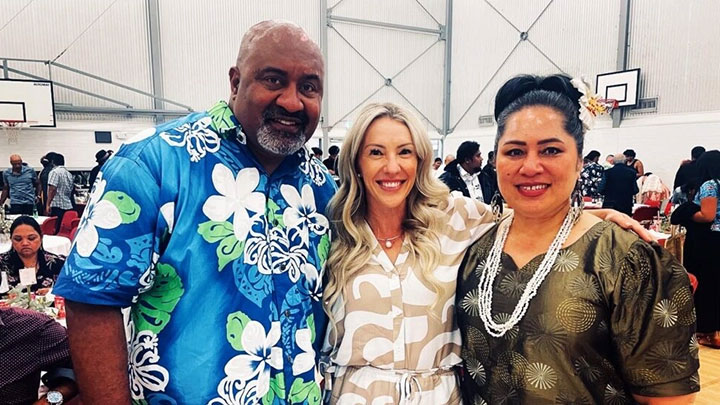
Child safe and friendly spaces and policies
Most of us have familial caring responsibilities, and achieving equanimity in our lives requires flexibility and safe spaces in the workplace for children. Both of my children and children of my colleagues regularly come into the office. There are spaces for them where they can relax, colour in, do some art and where appropriate be part of our conversations through observation.
What does this mean for inclusive workplaces?
Social acceptance of differences and creating opportunities for the vulnerable and disadvantaged will be seen as part of an enhanced wave of social change. Civil society will spearhead the creation of a balanced, diverse and responsible social fabric.
It means that we will need to embrace the globe in different ways and move beyond the binary into spaces that may be uncomfortable, but ones that call us to reimagine our stories and our patterns of connection.
In Australian First Nations culture it is said “if you want a country with us then you need to know your stories beyond the last couple of hundred years. If you want to truly belong to this country, as Australians, you have to know your story about this place.” The same can be said for organisations and institutions—they each have a story and when we look behind us, we see the future in our footprints. We have to learn to discover and write our own Songlines, our own stories, that root us not only to place and the times we live in now, but to the times and place of those who came before, and those who will come after. Understanding how Songlines, how our stories work as a framework for relating to each other and to place give us the key to belonging and to how we might promote Gender Equality, Disability and Social Inclusion in the Workplace.
Like countries, continents and regions, we all have a story, and it is time we start sharing our stories for they are the key to belonging. Our stories are the foundation to an everyone culture. I am from Kaurna country on the Adelaide plains in South Australia; it is where I live, work and raise my children. And it is my duty and privilege to foster a culture where everyone thrives through intentional and kinship based leadership. We are all responsible for nurturing a workplace where everyone can thrive in how we choose to show up every single day.
About the author
